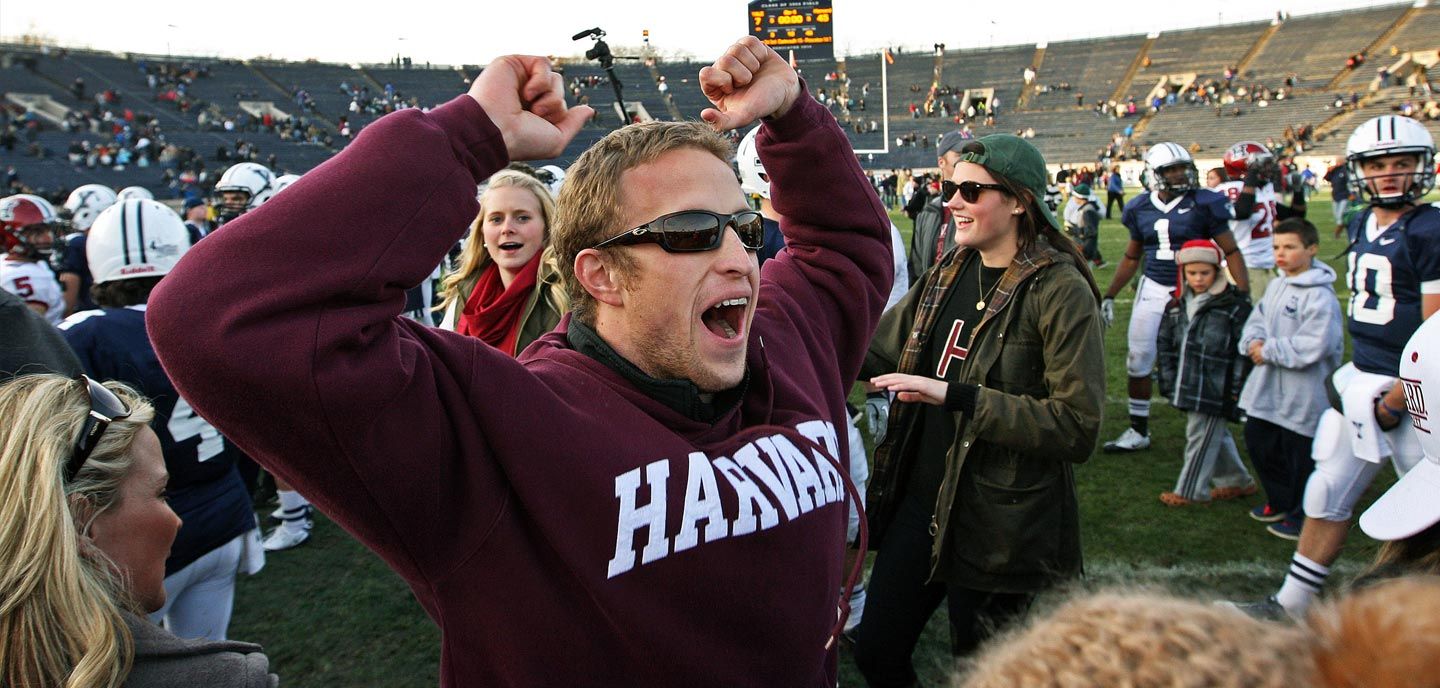The two latest events to shake the sports world come from Harvard University and the University of Wisconsin-Madison. Let’s start with Harvard.
The remainder of the Men’s soccer season was recently cancelled when the university discovered a “scouting report” that ranked members of the women’s team based on sexual appeal and other crude categories.
On October 25th, the week before the season was cancelled, The Harvard Crimson reported on a similar document that had been passed around in 2012. After learning of the existence of this document, the university’s investigation revealed it was an ongoing report to this day. They immediately cancelled the rest of the season, including any hope to play in the conference or NCAA tournament.
On November 6th, The Harvard Crimson revealed a second team at Harvard involved in a similar ranking system.
In a night game featuring Wisconsin and Nebraska on October 29, two days before Halloween, a fan showed up to the game wearing a mask resembling President Obama with a noose around his neck. The university asked him to remove the offensive parts of the costume, but ultimately allowed him to stay at the game and issued a public statement saying that the costume, “while repugnant and counter to the values of the university and athletic department, was an exercise of the individual's right to free speech."
Since the event, the university and the athletic department have faced a firestorm of opposition from members of the community and, more recently, student athletes of color.
Get our "Top Articles" sent to your inbox weekly.
While similarities exist between the two incidents, the likenesses end at the response each university took toward their respective problems. In both cases, how justice played out left me feeling uneasy and wanting more.
What is justice?
Before we look at each university's response, we should do so against a backdrop of understanding what justice actually means.
Whether looking at it from our English dictionary or Biblical theology, the meaning of justice falls somewhere along the lines of “doing what is right.” Justice means that the offending party gets punished and the offended party gets restored.
Did Harvard and Wisconsin pursue justice correctly? Did they do what is right? I would argue that both responses were dictated more by a desire to satisfy and restore their public image than an actual motivation to right what was wronged. Regardless of their true motivation, I believe there are flaws in each response. Let’s start with Harvard.
Swift and All-Inclusive “Justice”
As soon as the university discovered the same behavior from 2012 was happening today, they stepped in and cancelled the remainder of the season. That is swift justice. It is not my desire, nor my place, to determine the “rightness” of that decision. I simply want to point out the ways in which swift justice like this may not always be—right. It may be a good idea to read the last two sentences again before continuing. Here are three reasons swift justice in this case may be flawed.
Was everyone involved? This question is pretty straightforward. Is it right to take away the ability to play for an individual who chose not to participate in this report? Sometimes swift justice means individuals are punished because of association, not participation.
Did the punishment fit the crime (sexist behavior)? Again, I am not taking the side of the men’s soccer team. What they did was demeaning, crude, and inappropriate. Sometimes, however, the desire for swift justice causes us to overreact to a given circumstance.
Were they aware of the consequences? I would have to believe if the team knew that it was Harvard’s policy to forfeit an athletic season for such behavior, the team would have stopped their “scouting report” long ago. They had to know that someone was going to find out at some point. I am guessing they expected justice would look much different than losing an entire season.
Slow and Scarred “Justice”
In the case of Wisconsin, tolerance finally met a cultural foe it could not run over when it squared off against racism. With a nation watching, tolerance usually is the “right” play. Indeed, it is the exact play the university chose to execute. Chancellor Rebecca Blank said,
“As offensive as this costume was, I believe our university must resist the desire to outlaw forms of speech and political dissent with which we disagree. We strive to build a campus community in which ideas and expression are exchanged freely, but also constructively, respectfully and in a manner that advances educational opportunities for our students.”
After opposition from a local pastor, black leaders in the community, alumni, and current athletes, the university is backtracking and admitting their mistake. This admittance has taken the form of Blank apologizing for the hurt that the university’s response had caused for people of color and the athletic department working together with black community leaders to develop a new policy on hate speech.
In the end, did the university do what is right? Sure. Maybe. I don’t know. Regardless, the damage to the people of color in the community had been done. There is still pain and hurt. At a recent panel discussion, two black student athletes said the whole situation has felt like a “punch in the gut.” Justice was slow and it will leave a scar.
Perfect Justice (or the Upside Down Gospel)
As mentioned earlier, justice means that the offending party gets punished and the offended party gets restored.
Very rarely, however, is that how it actually plays out. When a crime is committed, the criminal will get punished if justice is served correctly. What happens to the person or organization they hurt though? They are usually an afterthought. Their compensation for the crime committed against them is usually the satisfaction that the criminal was punished.
With both of these university scandals, we see the one sidedness of how justice is dispensed.
In the case of Harvard, The university may have felt offended because they were thrown into a public relations nightmare, but the real group that needed to be restored was the women’s soccer team who was the subject of the report. Throwing aside whether or not the punishment fit the crime, what (if anything) could have been done to restore the dignity that was taken from them in the scouting report?
Wisconsin made a similar error. The university took on the position of being the victim and tried to take safe route (think: public relations) by claiming tolerance. They were blinded to the fact that they were not the victim at all. By failing to initially recognize and even consider the offense was to the people of color within the city—and maybe the country—the university left another mark in the scarred body of our black brothers and sisters.
The gospel agrees with what needs to take place for justice to satisfy the demands for everyone involved. The beauty of the Gospel is it recognizes and satisfies the requirements and for everyone involved.
But it flips the equation around in a way that makes no sense to human minds.
The ironic—and scandalous—justice of the Gospel sees Jesus taking the punishment for something He did not do. The Bible says in Romans that “the wages of sin is death.” Justice for our sin means death for us, separation from God for us. We are the offending party and have offended a Holy God. It is not a fair trade for God.
In God’s economy, however, the offending party (us) receives grace while the one who we offended (God), dies in our place.
That’s not fair. But that’s the point.
That’s perfect justice, and the reason current experience of justice continues to feel a little unsatisfying this side of heaven.














